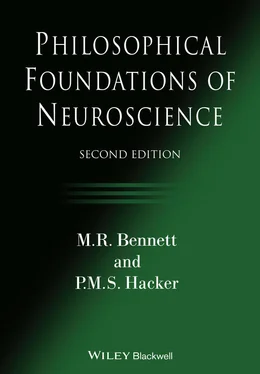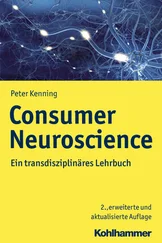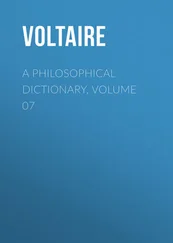That the exercise of mental powers is a function of the brain does not show that behaviour and experience are explicable neurally
Penfield objected vehemently to the suggestion that the mind is a function of the brain, and supposed that if it were, then the mind would cease to exist during sleep or epileptic automatism. The suggestion is unclear, but one may surely say that the distinctive powers of intellect and will of a creature that has a mind are a function of the creature’s brain (and of other factors too). It does not follow (as Penfield evidently feared it would) that the behaviour and experience of such a creature in the circumstances of life is explicable in neural terms. But nor does it follow that the mind ceases to exist during sleep or epileptic seizure – any more than one’s knowledge and beliefs, intentions and projects, cease to exist when one is asleep. Penfield was rightly impressed by the fact that ‘the mind develops and matures independently throughout an individual’s life as though it were a continuing element’ ( MM 80). But he was misled by his unquestioned assumption that the mind is a kind of agent. Had he thought of the mind in more Aristotelian terms as a set of powers and capacities (second-order powers), he would have been closer to the truth, and less prone to conceptual illusion. For the continuous possession of powers and capacities is not interrupted by sleep or even by epileptic automatism, even though the agent cannot exercise some of his normal powers during the seizure. And the developing unity of a person’s mind is not the development of a substance distinct from the human being himself, but rather the emergence of a determinate character and personality, an intellect with certain distinctive characteristics and a will with a coherent array of preferences, all of which are traits of the person – of the living human subject who has rights, duties and obligations, and who is responsible for his acts, actions and activities.
What Penfield thought the less plausible alternative to dualism is the view currently favoured
Penfield thought that a form of Cartesian dualism is more probably correct than what he conceived to be the alternative: namely, ascribing understanding, reasoning, volition and voluntary action, as well as deciding, to the brain itself. It is very striking and important that the strategy that Penfield conceived to be altogether improbable is precisely the route that is currently adopted by the third generation of neuroscientists, who ascribe psychological functions to the brain. This is the subject of the next chapter.
1 1We shall be critical of Sherrington’s ideas, but it must be remembered that his Gifford Lectures were influential and much admired in their day by great scientists. Erwin Schrödinger observed that ‘The book is pervaded by the honest search for objective evidence of the interaction between matter and mind. I cannot convey the grandeur of Sherrington’s immortal book by quoting sentences: one has to read it oneself’ (quoted by J. C. Eccles in his Gifford Lectures, The Human Mystery ( Routledge and Kegan Paul, London, 1984), pp. 4f.).
2 2C. S. Sherrington, Man on his Nature, 2nd edn (Cambridge University Press, Cambridge, 1953), p. 189. Subsequent references in the text to this work will be flagged ‘MN’.
3 3‘So our two concepts, space-time energy sensible [perceptible] and insensible [imperceptible] unextended mind, stand as in some way coupled together, but theory has nothing to submit as to how they can be so’, quoted by J. C. Eccles and W. C. Gibson in Sherrington – His Life and Thought (Springer Verlag, Berlin, 1979), p. 143, without a reference.
4 4Quoted ibid., p. 142.
5 5‘I have seen the question asked “why should the mind have a body?” The answer may well run, “to mediate between it and other minds”’ (MN 206).
6 6The phrase ‘to have a body’ is indeed curious and misleading. We do not say of insentient things that they have a body (trees, for example, do not have bodies). We ascribe bodies only to ourselves and sometimes to higher animals. Only what leaves a corpse or remains behind when it dies can be said to have a body (we do not say of a dead fish, for example, that it is the corpse or the remains of a fish – the remains of a fish would be a half-eaten fish). The use of the phrase earmarks not an empirical truth of some kind, but an attitude towards certain kinds of sentient creatures – paradigmatically towards human beings.
7 7C. S. Sherrington, The Integrative Action of the Nervous System (Cambridge University Press, Cambridge, 1947), p. xxiii.
8 8Descartes, letter to Princess Elizabeth of Bohemia, dated 21 May 1643.
9 9E. D. Adrian, ‘Consciousness’, in J. C. Eccles (ed.), Brain and Conscious Experience (Springer Verlag, Berlin and New York, 1966), p. 240.
10 10Ibid., p. 241.
11 11Ibid., p. 246.
12 12J. C. Eccles, in K. R. Popper and J. C. Eccles, The Self and its Brain (Springer Verlag, Berlin, 1977), p. 357.
13 13Eccles, Human Mystery, p. 3. Subsequent references in the text to this book will be flagged ‘HM’.
14 14Gottlob Frege, ‘The thought’, in his Collected Papers on Mathematics, Logic and Philosophy (Blackwell, Oxford, 1984), pp. 351–72.
15 15This error is still common among neuroscientists, and informs the research of Benjamin Libet and his colleagues that we discuss below (see §§9.1–9.2).
16 16Quoted by Eccles, without a reference, in Popper and Eccles, Self and its Brain, p. 374.
17 17Ibid., p. 358.
18 18See, e.g., F. Crick, The Astonishing Hypothesis ( Touchstone, London, 1995), pp. 22, 232, and E. Kandel and R. Wurtz, ‘Constructing the visual image’, in E. R. Kandel, J. H. Schwartz and T. M. Jessell (eds), Principles of Neural Science ( Elsevier, New York, 2001), pp. 492, 502. ( The binding problem is discussed in §4.2.3 below.)
19 19A. K. Engel, P. R. Roelfsema, P. Fries, M. Brecht and W. Singer, ‘Role of the temporal domain for response selection and perceptual binding’, Cerebral Cortex, 6 (1997), pp. 571–82.
20 20So, for example, Crick called his theory of attention ‘the searchlight hypothesis’, since, he claimed, the reticular complex and the pulvinar promote only a small proportion of the activity of the thalamus on its way to the cortex, and this activity can be likened to a searchlight that lights up a part of the cortex. Crick suggested that the thalamic reticular complex and the pulvinar interact with the brain stem and with cortical mechanisms to reach a salient decision as to which neuronal groups that are active will be ‘brought into consciousness’ by the spotlight of attention (F. Crick, ‘Function of the thalamic reticular complex: the searchlight hypothesis’, Proceedings of the Natlional Academy of Science USA, 81 (1984), pp. 4586–5490). Similarly, the notion of a scanning device or ‘monitor’ in the brain was invoked by Weiskrantz in connection with his investigations of blind-sight. In his view, the awareness that a normally sighted person has of whether he sees something in his visual field and of what he sees results from the operation of a neural monitoring system. Conscious experience, according to Weiskrantz, is the product of the monitoring function of the brain ( L. Weiskrantz, ‘Neuropsychology and the nature of consciousness’, in C. Blakemore and S. Greenfield (eds), Mindwaves ( Blackwell, Oxford, 1987), pp. 307–20). It is interesting that whereas Crick and Weiskrantz apply these metaphors to the brain, Eccles applied them to the mind.
21 21Neuroscientists’ misdescriptions of split-brain patients’ abilities and their exercise is examined and rectified in §17.3 below.
22 22W. Penfield, The Mystery of the Mind: A Critical Study of Consciousness and the Human Brain (Princeton University Press, Princeton, 1975), p. 1. Subsequent references in the text to this volume will be flagged ‘MM’.
Читать дальше












